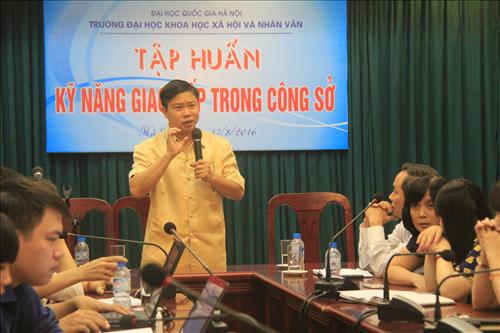
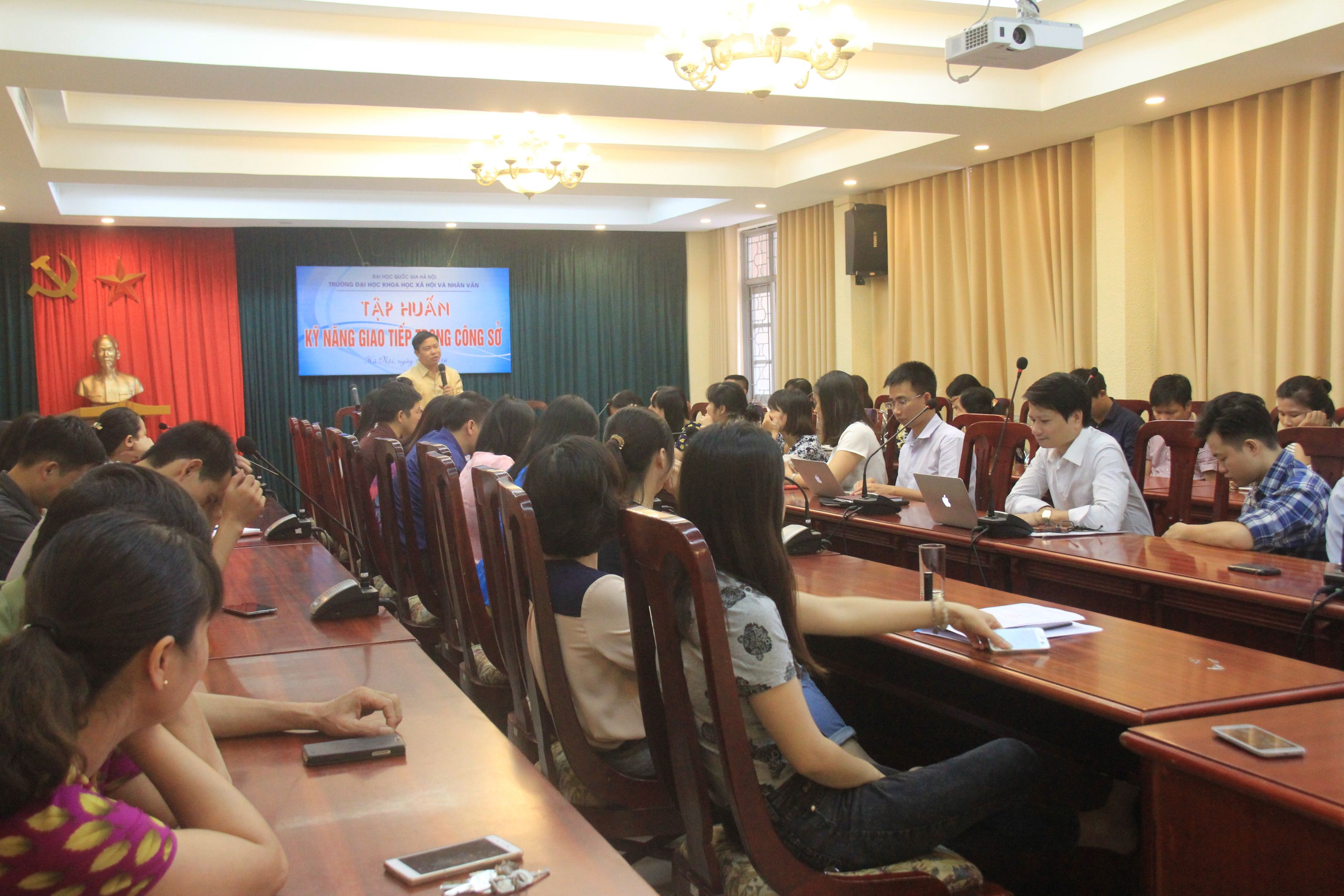
In the first part of the talk, Dr. Nguyen Van Hau mentioned the fundamental foundation of Vietnamese culture, a long-standing rice culture, along with the exchange and integration with Chinese culture and Western culture throughout the history of socio-economic development. Those typical factors create identity, but also leave many shortcomings in the concept, living habits, communication, and behavior of people when society enters a new period of development. For example, the "culture of tolerance" in work - being late, missing deadlines, not thoroughly solving work, lacking principles..., also partly comes from the production mindset of fragmented agriculture, dependent on the weather. In addition, emotional thinking and emotional behavior easily conflict with principles in work, leading to affecting work efficiency... In the concept of communication, Vietnamese folk culture (Eastern culture in general) shows that the tradition considers communication as "a measure of human value" (whether a person is smart or bad is compared with words, easy-to-listen-to, easy-to-approach behavior..., success or failure is discussed flexibly, smoothly, "in accordance" with nature); while Western culture only considers communication as a tool but emphasizes rational thinking, promotes the ego, and the individual's inner capacity... All cultural collisions and exchanges in a context of social integration, a transitional period, force us to acknowledge the positive and negative aspects, the barriers; at the same time, we must analyze and adjust scientifically and appropriately.
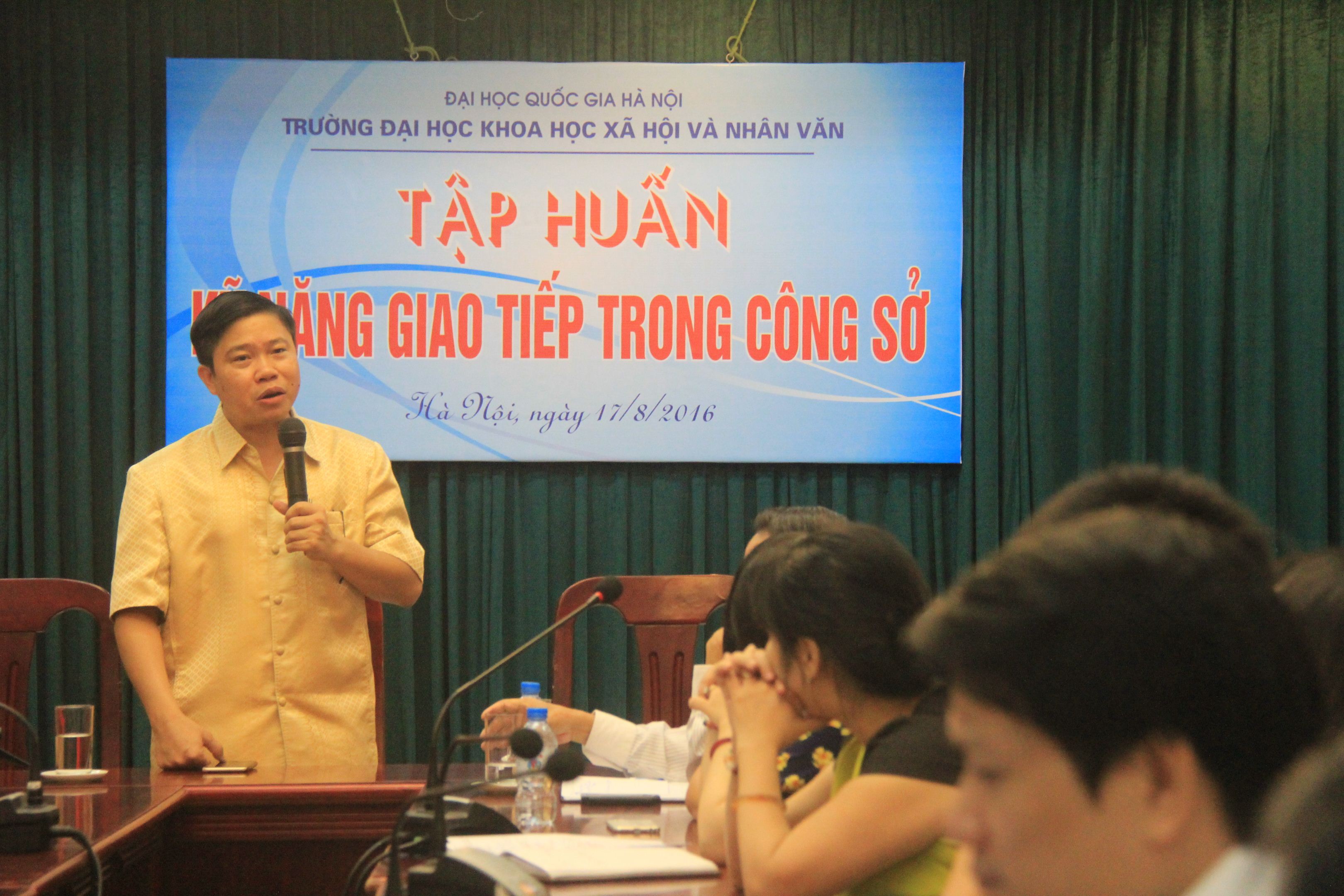
Dr. Nguyen Quang Lieu, Head of the Department of Politics and Student Affairs, Vice President of the University's Trade Union, said: "Communication in the workplace, especially in the University of Social Sciences and Humanities, is like a tree. Therefore, it needs to be taken care of. On the basis of the traditional cultural foundation of communication of the University, it needs to be taken care of even more to become better and better." Dr. Nguyen Quang Lieu also analyzed the problem in an interesting way: What is Communication, what is Communication? How is Communication in the activities of a University appropriate and effective? In particular, the University of Social Sciences and Humanities must be a special institution. The daily communication activities of the officers and employees of the Rectorate are: communication with leaders, communication with colleagues, communication with the people, communication with learners (Vietnamese and foreign students, trainees, postgraduates, young and old, diverse ethnic and religious backgrounds...). The responsibility of those doing training and training service work is very important and is the highest principle in the educational environment.
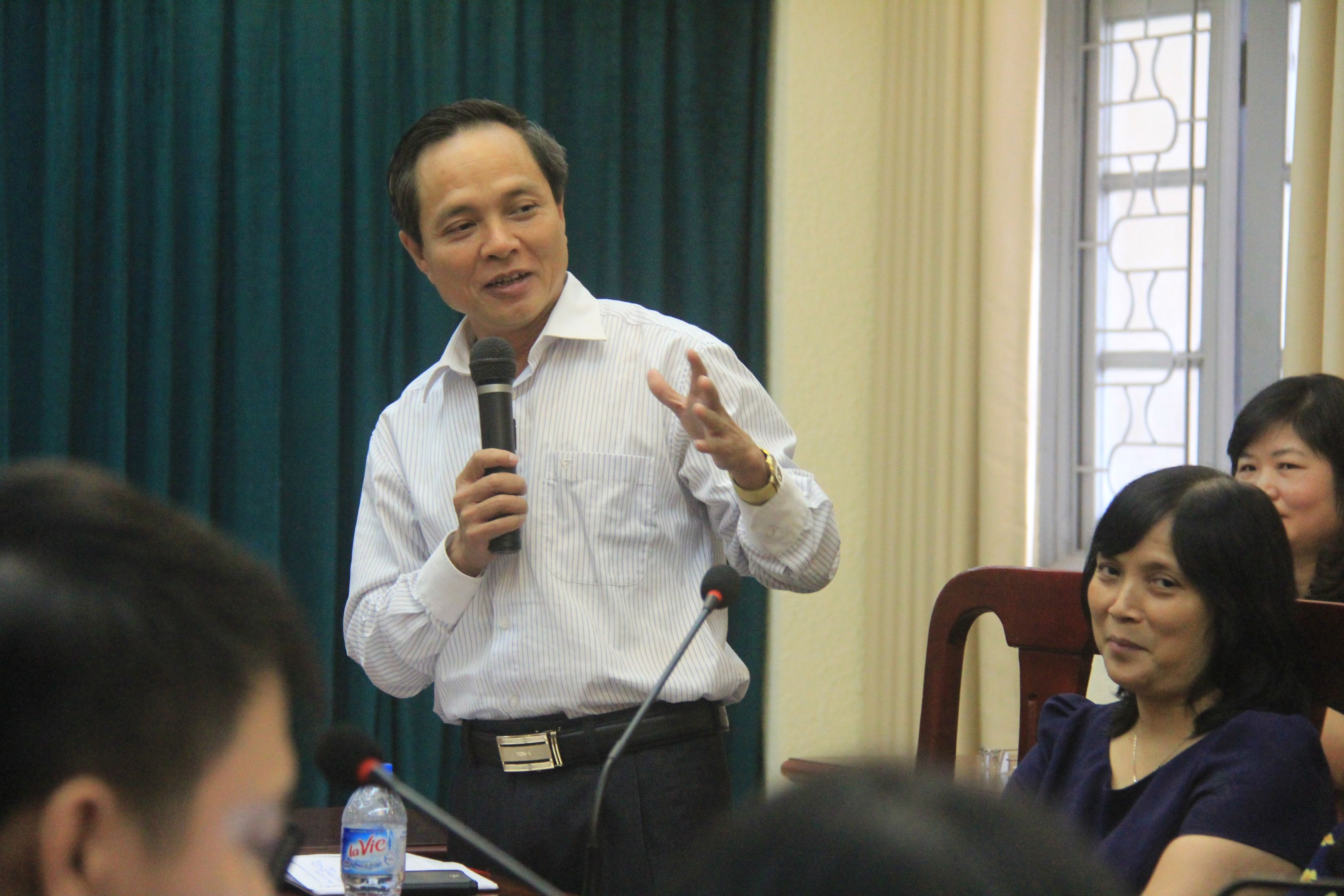
After a period of heated discussion, Dr. Nguyen Van Hau systematized a number of criteria to build and innovate communication culture in the workplace, and the more clearly, specifically and consistently defined the criteria are, the more effective they will be:
-Core values system(vision, mission, philosophy of action, slogan of action, core values)
- Code of conduct: from the way of addressing, gestures, behavior, posture, speech... with people and with other objects such as clothing, working tools, landscape environment, equipment...
-Rules for handling work: working time, implementation process, work priority, implementation method, labor safety (emphasizing safety factor in speaking, protecting personal and collective reputation, handling crisis), technological innovation - methods, protecting sustainable development of natural environment (unity in both instruction and teaching content towards respecting objective laws, sustainable environment), how to behave with customers, partners...
- Public ethics: each position has its own ethics, from managers to cadres, lecturers, workers... all have appropriate ethical rules, need to determine: what can I do? what can I not do? what should I do?
-Mechanism for honoring, rewarding and motivating: based on the spirit of understanding the meaning of work, trust in leadership, employees' achievements are properly recognized, there are equal opportunities for promotion, promoting the spirit of sharing benefits...
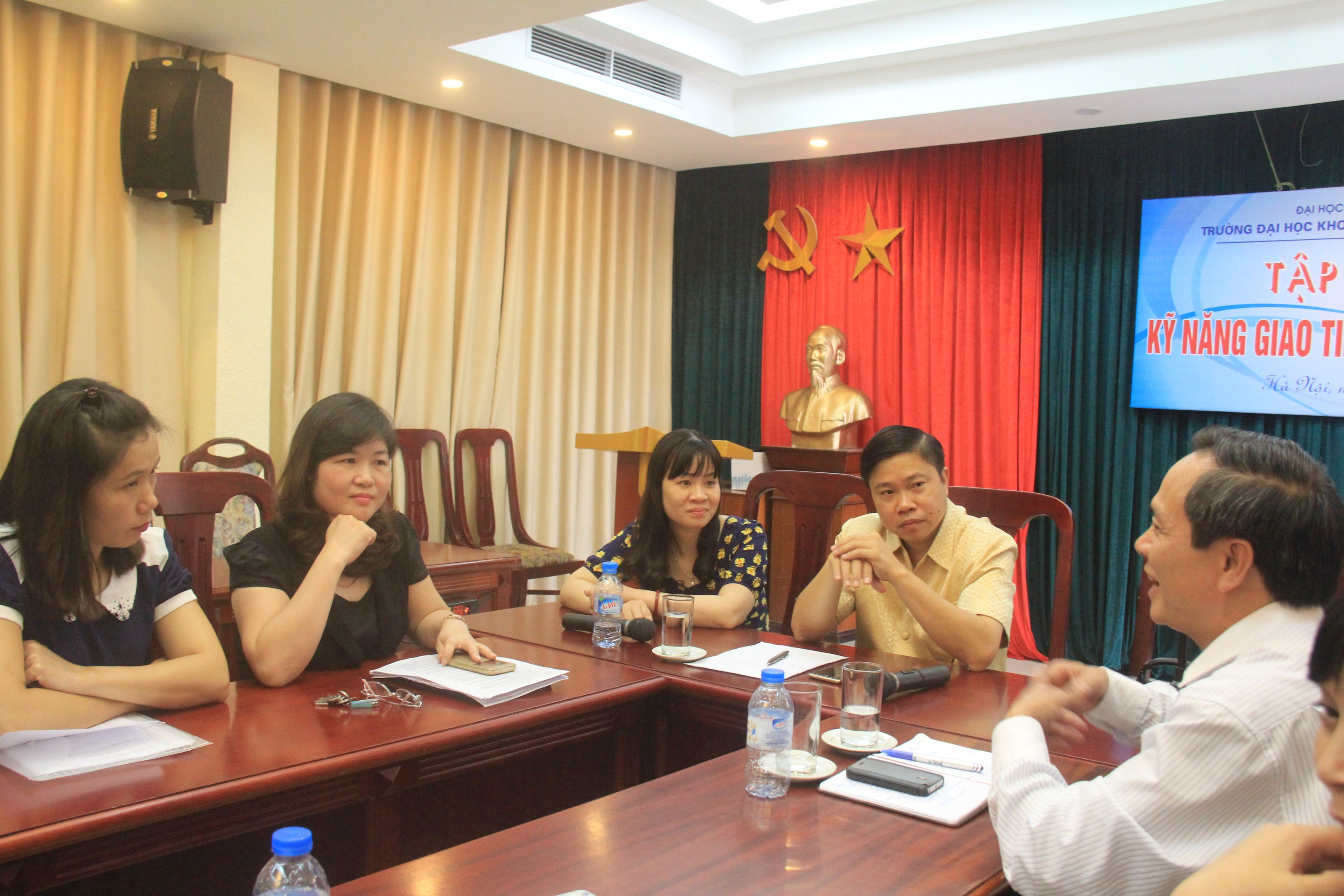
Dr. Ngo Thi Kieu Oanh, Head of the Personnel Organization Department, shared: "Innovation in communication culture is not a new topic, but to implement it thoroughly and effectively is very difficult and takes a long time." Through the training session, each officer and employee can draw experiences to perform their work better.
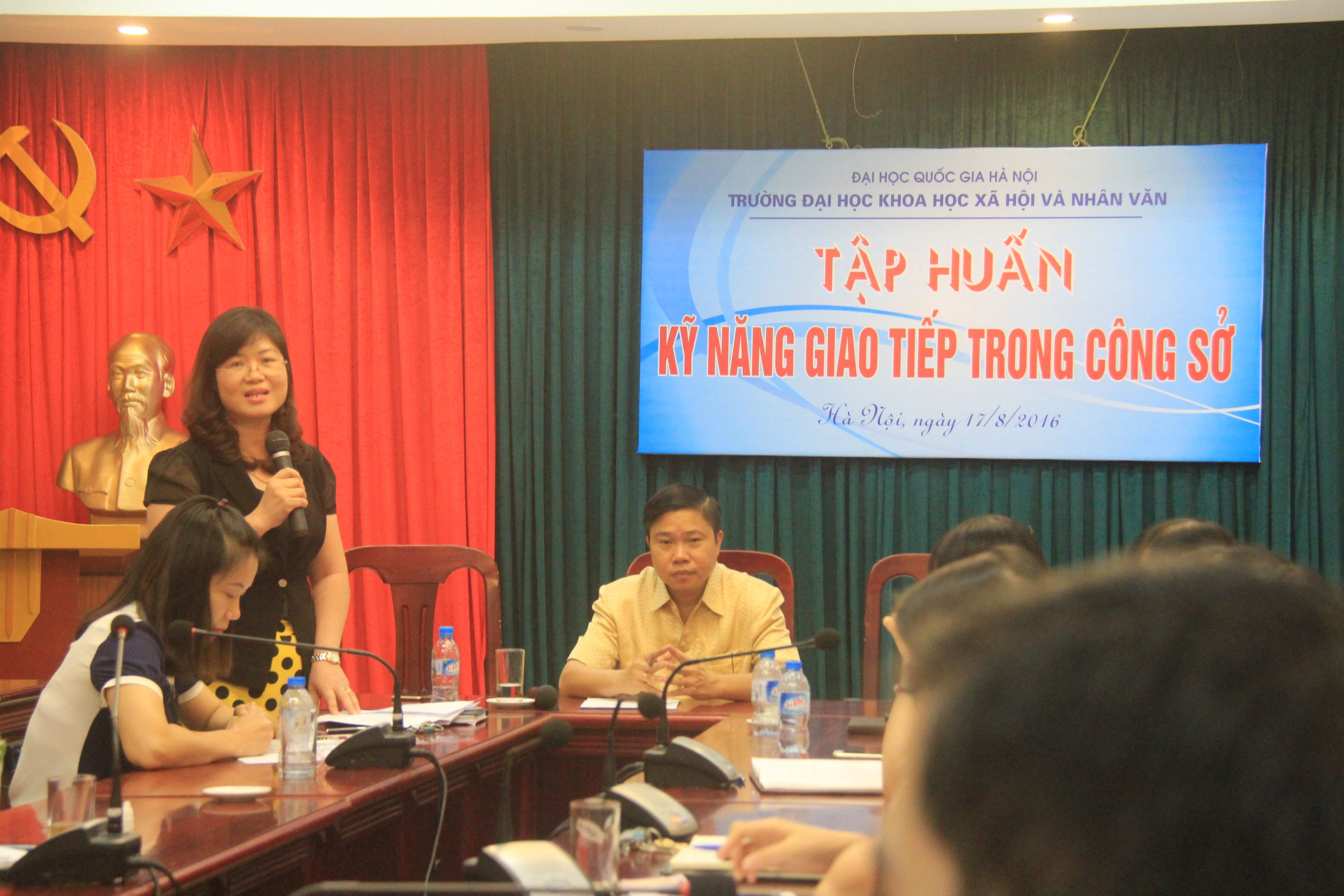
In the general development goal of the School, the process of administrative reform, innovation of office culture, raising sense of responsibility and work efficiency is linked to each individual and each working position. This process may encounter many difficulties and obstacles, but with the joint efforts of all staff and employees of the School, it will certainly achieve many good results.
Author:Le Thu Ha
Newer news
Older news